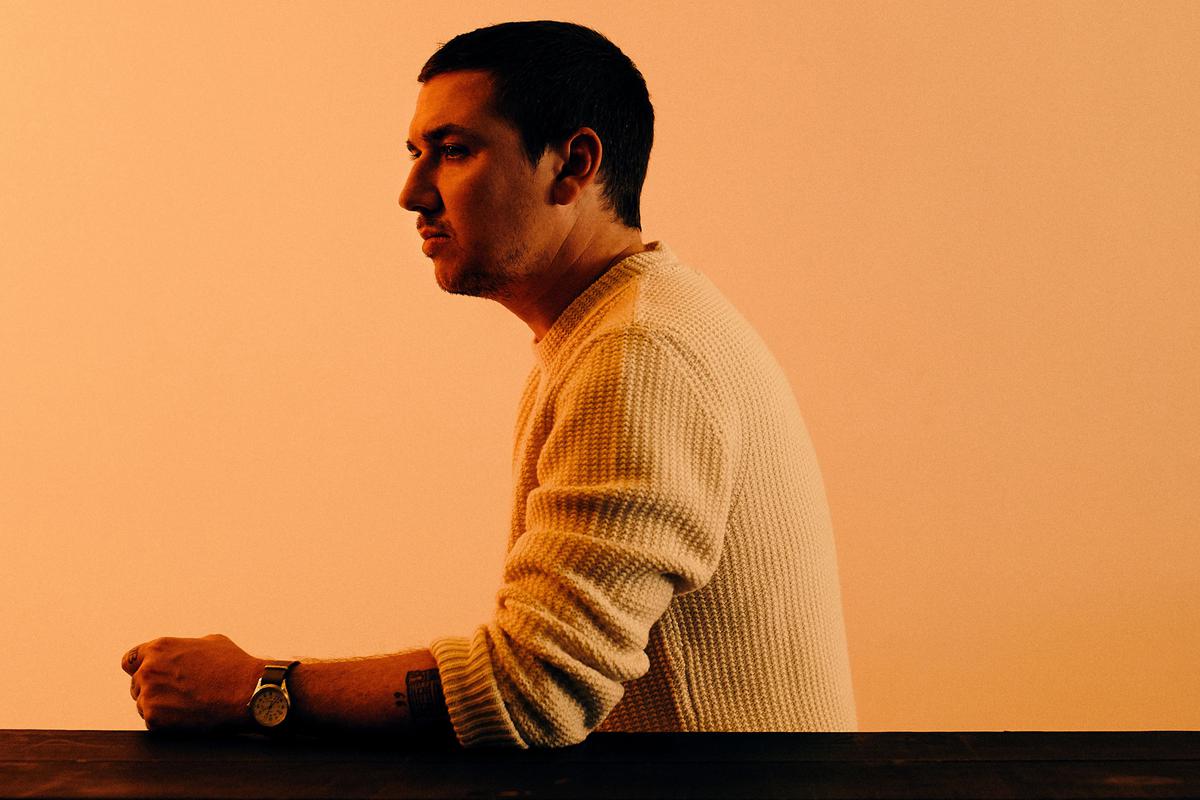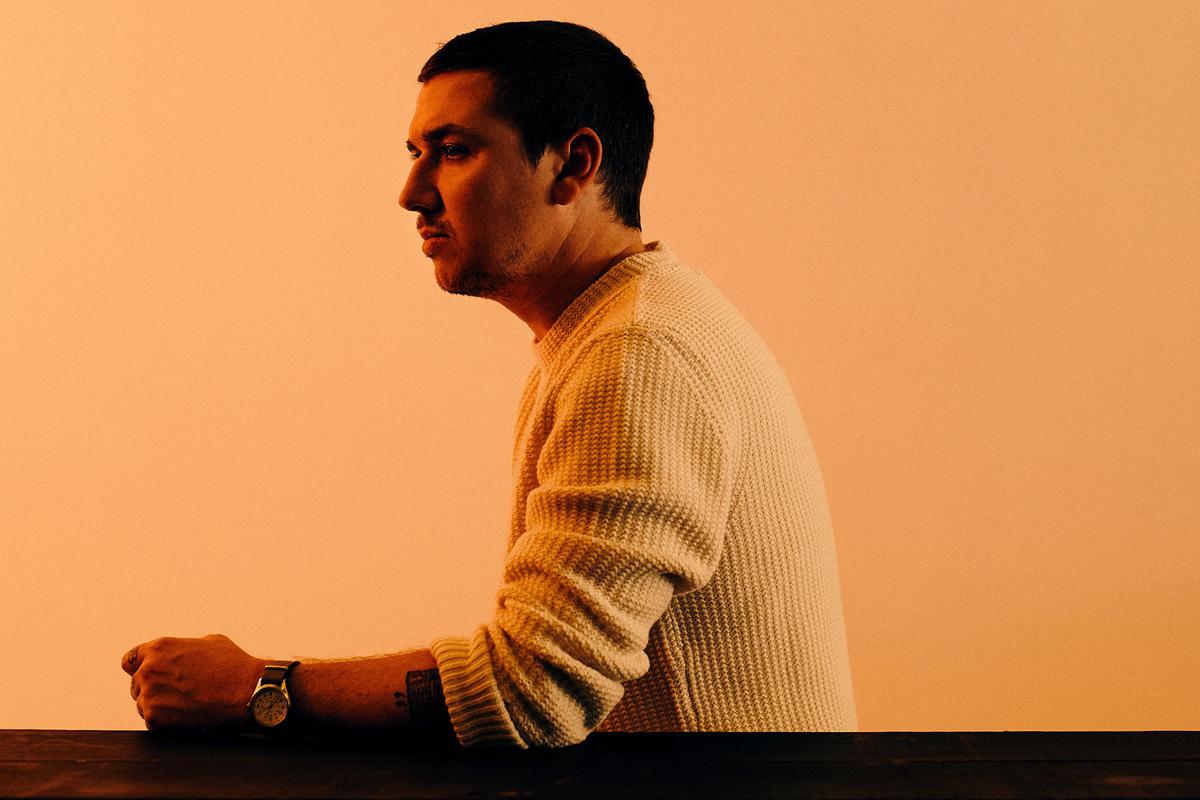
Susto
Terminal West
∙
Atlanta
Saturday, March 28 at 9 pm EDT
Concert Venue
Saturday, March 28 at 9 pm EDT
Concert Venue
Entry Options
Tickets
Buy Tickets
Details
Description
Susto with special guests Molly Parden and Rose Hotel- Terminal West
Mobility has always helped define America. Don't settle for where you start. Find a new town, new coast, or new state of mind -- then make it yours. "We export this idea of getting in your car and going somewhere, trying to find something new, bouncing around," says Justin Osborne. "We live in some strange, crazy times. There is a sense of darkness. But I'm crisscrossing the country, and people are good and fun. There is a lot of beauty everywhere. I think not forgetting that is important."
Osborne is home in Charleston, South Carolina, reflecting on the personal journey and cultural climate that have led to Ever Since I Lost My Mind, the third record and label debut for his acclaimed project SUSTO. The album is a resounding triumph: a mix of new partnerships and collaborations with old friends, all anchored by Osborne's perceptive songs that explore connection, loss, and transience -- and the pain and joy each brings.
"Ever Since I Lost My Mind is very personal. This collection of songs came together over the course of a couple of years, and they all represent different moments," he says. "It felt cathartic writing all of them, and they were also all fun in different ways."
With a rock-rooted sound that doesn't shy away from radio-ready hooks, SUSTO keeps listeners engaged by refusing to occupy an easily defined space. Produced by Ian Fitchuck (Kacey Musgraves, Ruston Kelly) and featuring key input from Osborne's longtime creative sounding board Wolfgang Zimmerman, Ever Since I Lost My Mind defiantly experiments with synth embellishments, Latin heart, guileless folk, and more. Osborne's mellow vocals comfort without losing the ability to surprise -- delicate croons, growls, and occasional screams take turns.
Osborne wrote his first songs as a 14-year-old in small town South Carolina, sneaking time with his late grandfather's parlor guitar that his parents had actually forbidden him and his three rowdy brothers to touch. "So I'd go steal it out of my dad's closet whenever they were out of the house," he recalls. "It only had like three strings on it. I remember figuring out how to do barre chords, and I wrote a three-chord song about a girl I liked." Drawn to music and supported by parents who just hadn't wanted their boys to break a family heirloom, Osborne played in bands throughout high school, military school, and college.
But SUSTO didn't begin until Osborne thought he was walking away from music for good. Burned out after years of self-booking, self-management, and a relentless grind, he had played a farewell show with his then-band and was prepping for a move to Cuba. He set up an online home for SUSTO as a holding tank for demos he couldn't quite bear to toss.
When Osborne moved to Havana as part of a study abroad opportunity, he thought he was abandoning music for anthropology. But the Cuban musicians and artists he befriended had other ideas. They were among the first to see that SUSTO -- and the music that would ultimately fuel it -- captured him too well to remain an afterthought. Re-energized, he returned to the States half a year later and recorded SUSTO's first album. Just after the release of the band's self-titled debut album, Osborne faced a clear choice. "It was a weird moment. I just had to finally quit keeping one foot out of music and dive in. So, I got knuckle tattoos and haven't stopped trying to make this work since then," he says with a laugh. SUSTO's acclaimed sophomore album & I'm Fine Today made it even more clear that music and Osborne were meant to be.
In Latin American cultures, the word susto describes an intense fear understood as a condition of the soul -- an ongoing, spiritual panic attack. All of the letters of susto also appear in Osborne's full name. "SUSTO was this combination of phonetics and meaning -- it felt like me, like a name for myself," he says. "I chose the name SUSTO for the project because the meaning behind the word -- that deep fright -- was something I was experiencing, and songwriting felt like it was helping me cure it by helping me to process what was happening. Personally, it was a time of so many powerful transitions: abandoning my religion, losing touch with my family, and just having a general sense of being lost, without direction."
That nod to transition reverberates loudly throughout Ever Since I Lost My Mind. While SUSTO began as a band and still benefits from collaboration with peers, the new record also positions the project finally and firmly as what it's really always been: Osborne's vision. "I come from a background of being in bands, so it's hard for me to be comfortable taking complete control," he says. "Even being the only person in a promo photo was a hard thing for me to get used to. It's taken years for me to realize what SUSTO should be -- what it really is."
"Homeboy" kicks off the album. Osborne contemplates friends moving on from Charleston over jaunty acoustic guitar that evokes exploratory rambling before heavier electric guitar adds gravity to all the leaving. He didn't want loved ones to go, but then realized that in many ways -- even though Charleston remains home base -- he'd already left. "The whole album deals with these pulling-apart decisions -- not in a negative or a positive way, but in a reflective way," he says.
Sauntering "If I Was" is a lighthearted stroll through different identities and aspirations, followed by the optimistic yearning of "Weather Balloons," buoyed by punchy percussion and keys. Driving "Last Century" revels in timeless bonds revealed by details: "I can see you in the driveway, smiling, licking your left front tooth," he sings.
"Livin' in America" extols beloved U.S. cities and finding the right people in them. It's a self- aware ode, both gently sarcastic and totally sincere -- a timely love letter to a country whose defining quality today is often turmoil. Stripped down "Cocaine" skulks through dark corners, while "No Way Out" lounges in captivity that Osborne has no urge to escape. Gorgeous album closer "Off You" is bright and honest, an intimate moment of clarity mid-transition.
One of Osborne's favorite tracks, "Manual Transmission," was written on a cold day on tour in Norway when he was hounded by homesickness. He plays lead guitar on the track and relished the opportunity to express himself via aching strings in addition to words. "Esta Bien" soars sweetly and entirely in Spanish. "House of the Blue Green Buddha" is a love song that lands because of its whimsical specificity -- details from the home and closeness Osborne and his wife share.
The title track is a stunner: sad but hopeful, content but restless, nostalgic but progressive -- a beautiful encapsulation of the push and pull that shapes the entire record. Osborne's experiences with psychedelics also play a role, both in "Ever Since I Lost My Mind" and the album as a whole. Warned as a child that drugs would make him lose his mind, he now believes in the freedom and self-discovery that can come with letting go in various ways. He is also convinced that some people from his past think he's insane. "They think I'm a crazy hippie, and really, in a lot of ways, I guess I am," he says with a smile. "I feel more loving and more understanding."
That acceptance of himself and others may be SUSTO's defining trait. "I can lose my mind on stage sometimes -- I will break down and cry or have to keep myself from doing it," Osborne says. "I think about my grandad's guitar, all the bands I've been in, and just seeing these people responding to and connecting with the songs..." He trails off before grinning again and adding, "I just feel so incredibly lucky."
Born in Jonesboro, GA to a family of 9 children that had little exposure to music
apart from a church hymnal, Molly Parden’s career in music is something of a
mystery—something that happened to her more than it was ever anything she set
out for. When none of her siblings took a particular interest in music at a young
age, Molly inherited a violin built by her great uncle when she was 8 years old,
discovering her lifelong love for music through the haunting simplicity of melodies
long before she ever heard pop music, picked up a guitar, or started singing songs
of her own.
Molly moved to Nashville in the spring of 2013 after 3 years of growing in the lush
songwriting community of east Atlanta, and soon discovered she could pay her
bills as a singer, providing her memorable and uniquely captivating harmony
vocals on over 50 records in just a few years. Though she rarely performed her
own songs live, her increasing number of fans and champions—everyone from her
mom to her fellow songwriters in Nashville’s vibrant underground—encouraged
her to finally make another record of her own.
What resulted is a voice that is as haunting as it is comforting, beautifully raw and
yet effortlessly just out of reach—a disarming union of aloofness and intimacy
that runs throughout her songs, lulling the listener with its cadence of melancholic
melodies and searching phrases that whir in your head long after her songs have
gone silent.
But for all its unapproachable beauty, the heart of Molly’s music is humble and
profoundly human. They are songs that remind us that heartbreak isn’t simply
another marketable human emotion, but is more like a familiar place—a sacred
space within all of us. We are all born with a deep sense of loss, and great art has
a way of articulating the personal tragedy inside of us. It makes listening to
Molly’s songs feel like falling into a dream or a distant memory— a beautiful
reminder of something we’ve known all along.
-James McFetridge Wilson
Rose Hotel’s 2017 EP, Always A Good Reason, was passed around like a secret in music scenes and college towns from Athens, Ga. to Bowling Green, Ky. The stripped-down intimacy was equal parts introspective and wistful, recalling a distant era when voices like Joni Mitchell and Emmylou Harris cut through the hiss of A.M. static.
Rose Hotel's forthcoming debut LP, I Will Only Come When It’s A Yes, offers a polished, full-band sound, which is a striking evolution from the lo-fi, bedroom origins of Reynolds’ first recordings under the moniker. The fuller soundscapes highlight Reynolds’ captivating vocals that at times feel like rocks to the stomach, giving the listener a sinking feeling and drawing them in. Like that grade school truth about pressure over time, the sum of her vocals on the record form a pressure that presses it into a solid, glittering whole.
I Will Only Come When It’s A Yes maintains the candid vulnerability that has defined Rose Hotel’s fledgling songbook, but this go-around Reynolds recruited a slew of collaborators. The album was recorded and produced over the course of 3 months with Atlanta producer Graham Tavel at his home studio, where Reynolds spent time between jobs tracking, recording, and mixing.
In the months before going into the studio, Reynolds’ had been playing her songs with a band of tight-knit Atlanta musicians and wanted to capture that sound for the first full-length Rose Hotel release. The album features 11 different musicians from Atlanta’s emerging indie scene — members of Material Girls, Neighbor Lady, Shepherds, Karaoke, and Palm Sunday — with various musical contributions that include flutes, trumpets, vibraphone, background vocals, and more. The result is more sophisticated instrumentation that builds upon the sparseness of early Rose Hotel releases, creating a full-bodied sound that reflects the bolder confidence Reynolds possesses as frontwoman.
In the midst of these collaborations, Rose Hotel displays an accomplished sonic progression on I Will Only Come If It’s A Yes. From “10 K,” the record’s shoegaze tinged opener, to the 1960s girl group-inspired “Would You Believe Me,” to rollicking highway rocker “Running Behind.” Though Reynolds flexes new creative muscles, tracks like “Jamie” and “Blue Light” resemble the three-chords-and-the-truth authenticity of Rose Hotel’s first songs. The record’s shift in style offering a return to Rose Hotel’s minimalist roots, which painted vivid grayscale vignettes of longing and remorse.
“It’s a record about running from nostalgia, but also leaning into it. It’s about transitioning through life, learning from the different phases we endure,” says Reynolds. “Rose Hotel will always be a shapeshifter. Sonically, I want to sound modern and relevant to what I’m listening to and loving now, while also nodding to and gleaning influence from the older music that resonates so deeply with me as a musician and a woman.”
A lush debut, I Will Only Come When It’s A Yes is underpinned by a newfound charisma and sharpened lyrical world-weariness. From the project’s inception, Reynolds has honed in on a natural knack for processing complex emotional landscapes in precise, plaintive language: lines that are sweet on the surface, but soul-bruising on the second listen.
“Nearly old enough but too young to understand / Time isn’t slowing down and I see wrinkles in my hands,” Reynolds’ sings on opener “10 K.” The deceptively dark lyrics juxtaposing the song’s bright soundscape.
Reynolds’ vagabond spirit heavily influences her storytelling, which dissects crumbling relationships and the disorienting feelings of striking out on your own. Having attended 11 different schools, these have always been underlying themes in her life as she's never felt tethered to one place for long. The majority of the record was written after Reynolds relocated from Bowling Green to Atlanta in 2017, from a conservative college town to a sprawling Southern metropolis. These songs recall mercurial romances, but also uncertainty and even relief in the geographical separation from her old life. There are no vengeful kiss-offs, or even answers to the questions riddling Reynolds’ psyche, as she packs her belongings and heads 200 miles south. Rose Hotel’s lyrics possess a keen emotional intelligence, her most striking songs delivered from an old-soul’s heavy heart.
Rose Hotel’s wandering ethos is most evident on album closer “Running Behind.” Reynolds uses blurry snapshots from her youth to piece together a narrative of nostalgia, offering a bittersweet glimpse at love lost and putting a millennial twist on the stereotypical theme of the freedom of an open highway. The Atlanta transplant sings of images burned in her brain. Reynolds recalls the coins she wished on in vain on some urban side street. She tells of dark winter mornings when her dreams of worthlessness awoke her. The most poignant: a mental image of an old flame asleep while she drives into a barren stretch of interstate.
“The passenger seat it always reminds me of / The years that I spent but never could get caught up,” sings Reynolds.
“I think I use songs to ask questions,” Reynolds explains. “Was it right? Would you believe me? Won’t you write home? Do you think you could do better? Did you only hold me to pass the time? Much of the record is me asking lots of questions, attempting to find the answers, and fully-well knowing that they may never come plainly. Perhaps, in some way, the title to this album is some semblance of an answer to all the questions therein.”

